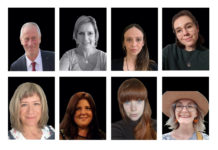If you want solutions for emotional distress, vote NOW! Vote for the distress model and vote for Aunt Bertha.
1) Vote now for the distress model instead of the disease model: http://bit.ly/xoBKsq
Because it’s outdated to talk about the recovery model vs. the medical model. People love medicine and it makes recovery not look scientific. Instead, we should talk about the distress model vs. the disease model. This makes clear that emotional distress is temporary and also makes clear who is selling diseases and illness that haven’t been proven to have a genetic or chemical basis. Until March 5, SAMHSA is accepting feedback on their forum for recovery information. I’d love for you to vote for my idea about the distress model instead of the disease model of mental health. Also, let’s stop using the term “medical model.” Recovery IS evidence based.
The distress model is the idea that a mental health diagnosis is a permanent solution to a temporary problem. In my case, I was very confused and upset about my marital life, my spiritual life, and my future career all at the same time. Plus I was smoking pot a lot, and as Robert Whitaker says, “This is not really one of the five food groups, regardless of what some people may think.” Mental health professionals never addressed my emotional distress, just said I had a disease: genetic or chemical imbalance. They gave me medications that also didn’t address my life situation that were causing the distress. The most damage for me was the diagnosis itself, which made me give up on my dreams. That’s why my recovery story is called Taking Back the Dreams.
Now scientific evidence is showing that extreme emotional states cause brain changes, not the other way around. Vote here to show support for this model of explaining “mental illness.” http://feedback.samhsa.gov/forums/148531-help-samhsa-highlight-advances-of-the-behavioral-h/suggestions/2589269-the-distress-model-to-explain-both-causes-and-solu
2) Vote for Aunt Bertha: http://bit.ly/xYsyvy
Also, for the next nine days, a fellow social entrepreneur is in a contest to earn a fellowship to promote his business solving emotional distress. He’s built a website called AuntBertha.com that will connect people to all social service supports in the nation instantly. He is a social entrepreneur – someone working to solve society’s problems using business models. Erine Gray is a finalist for the Unreasonable Institute. This name comes from the quote from George Bernard Shaw, an Irish Playwright and essayist who says, “Reasonable people adapt themselves to the world. Unreasonable people attempt to adapt the world to themselves. All progress, therefore, depends on unreasonable people.”
Erine Gray is an Unreasonable Person like us. He needs to raise just $4000 in the next 9 days to win his fellowship. He says,
Thank you so much for your offer to help. I know you don’t know a lot about me yet, but the subject of the mental health system is very important to me. My family experienced first hand the problems with overuse of medications and labels. It’s one of the biggest problems in our society, and I agree with you that there are much better ways of going about it than the status quo.
One of our goals of Aunt Bertha is to make people aware of all of their options, not just the common ones. We’re still building out the model, but I’d love to work with you to make sure we roll out a comprehensive listing of all options, being peer support, call centers and try to make aware the good things that are going on. I don’t know how that would look exactly, as we’re still finding our way but I would need the help of good domain experts like yourself to help guide our policies. I think we share the same goals in a lot of ways and I’d love to help the cause. Imagine, someone somewhere at 2:00AM in the morning wanting to talk to someone (a real person) and being able to link them up virtually. I’m hoping Aunt Bertha can be the platform that connects people to great programs like those promoted by the recovery movement.
Please vote for him. You can donate any amount to help him on his way or just support him by sharing the link on your Twitter and Facebook profiles. Please spread the word:https://marketplace.unreasonableinstitute.org/project/aunt-bertha/















Marvellous! I use the term, “Mental Distress,” all the time now. And when people talk about schizophrenia and such like concepts I talk about, “Severe mental distress.” It makes it sound so much more ordinary and everyday.
In the UK there is a national campaign called, Time to Change, which is an anti-stigma campaign. There slogan is something like -Mental Illness, just like any other illness – which really irritates me. It is not like any other illness when you were sexually assaulted by a close family member as a child, had a dreadful partner as an adult and lost your job and now, as a result you can hardly manage your life (a composite of several peoples stories which keep reoccurring in the people who I talk who have received serious mental health diagnosis). It is not an illness like any other when as a child social services were involved in your family life for about 10 years but somehow did not support your family in a way that prevented you being seriously hurt by your mother to such a degree that you spent the early years as an adult in psychiatric hospitals and homeless hostels (another story I have heard quite a few times now).
Mental distress is something everyone can relate to and the idea in itself diminishes stigma for that very reason.
Report comment
I wonder if there are “public awareness” campaigns in many places pushing the disease model and claiming they are reducing stigma.
I know in my area (the Canadian province of Manitoba) there’s a new campaign called “We’re Crazy Not to Talk About Mental Illness”. I see billboards everywhere. They are sponsored by the Mood Disorders Association of Manitoba, which raised $20,000 for the campaign.
When I see ads like this I feel as if a certain segment of society is trying to claim a universal experience as their own, and convince society to see it in a way that leads to more labeling and drugging and even less understanding and real emotional help. They make me so mad, and I wish I could say something – but I know it would fall on deaf ears. Such is the hegemony of the disease model.
Report comment